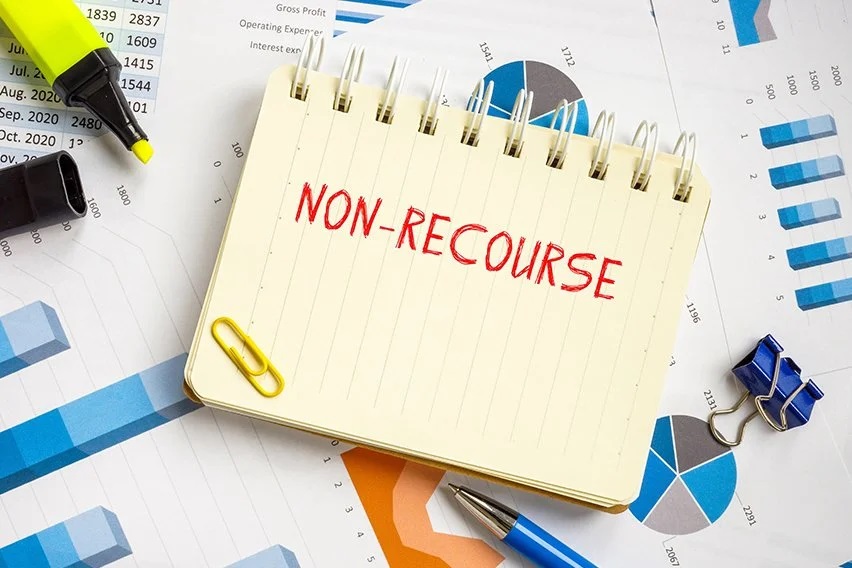Understanding the meaning of non recourse financing is crucial for investors, business owners, and financial professionals. Non-recourse financing is a specialized type of loan that offers unique benefits and challenges. In this article, we will explore the meaning of non-recourse financing, its key features, benefits, drawbacks, and practical applications.
What is the Meaning of Non Recourse Financing?
The meaning of non recourse financing refers to a loan secured by collateral, typically property, where the borrower is not personally liable for the debt. If the borrower defaults, the lender can seize the collateral but cannot pursue the borrower’s other assets. This concept is in contrast to recourse loans, where lenders can go after the borrower’s personal assets if the collateral does not fully cover the loan balance.
Key Features of Non Recourse Financing
- Collateral-Based: Non-recourse financing is secured against specific assets, such as real estate or equipment. The lender’s claim is limited to these assets, which is a critical aspect of the meaning of non-recourse financing.
- No Personal Liability: Borrowers are protected from personal liability beyond the pledged collateral, an essential feature that defines the meaning of non recourse financing.
- Higher Interest Rates: Due to the increased risk for lenders, non-recourse financing often comes with higher interest rates compared to recourse loans.
- Stringent Requirements: Lenders typically impose stricter criteria for non-recourse financing, including higher down payments and lower loan-to-value (LTV) ratios.
Benefits of Non Recourse Financing
- Risk Mitigation for Borrowers: One of the significant benefits highlighted in the meaning of non recourse financing is that borrowers’ personal assets are shielded, reducing their financial risk in the event of a default.
- Encourages Investment: Investors might be more inclined to engage in projects knowing their personal assets are protected, underscoring the meaning of non-recourse financing.
- Asset Protection: Non-recourse financing provides a layer of protection for borrowers who own multiple properties or have significant personal wealth, reinforcing the importance of understanding the meaning of non-recourse financing.
Drawbacks of Non Recourse Financing
- Higher Costs: The higher interest rates and fees associated with non-recourse financing can make it more expensive over time.
- Stricter Terms: The stringent lending criteria can limit access to non-recourse financing for some borrowers, illustrating a downside to the meaning of non-recourse financing.
- Lender’s Risk: Lenders face a greater risk since their recovery is limited to the collateral, leading to potential losses if the collateral value falls short, a critical consideration in the meaning of non-recourse financing.
Practical Applications of Non Recourse Financing
Real Estate
Non recourse financing is common in commercial real estate. For example, a real estate developer might secure a non-recourse loan to finance the construction of a new apartment complex. If the project fails and the developer defaults, the lender can only seize the property and not pursue the developer’s personal assets, clearly demonstrating the meaning of nonrecourse financing.
Project Financing
Large infrastructure projects, such as power plants or toll roads, often utilize non recourse financing. The project itself serves as collateral, and the lenders depend on the project’s cash flow for repayment. This type of financing is crucial for projects with high capital expenditure and long gestation periods, highlighting the meaning of non recourse financing.
Corporate Financing
Corporations sometimes use non-recourse financing for specific investments or subsidiary operations. This arrangement allows the parent company to limit its exposure and liability while funding new ventures, showcasing another aspect of the meaning of non-recourse financing.
Case Study: Non Recourse Financing in Action
Consider a renewable energy company planning to build a solar farm. The company secures non-recourse financing, using the solar farm as collateral. The loan terms stipulate that repayment will come from the revenue generated by the sale of electricity. If the solar farm fails to generate sufficient income, the lender can seize the solar farm but cannot hold the company accountable beyond this asset, a practical example of the meaning of non-recourse financing.
How to Qualify for Non-Recourse Financing
- Strong Collateral: The collateral must be valuable and marketable, ensuring that the lender can recoup the loan amount if necessary, a critical factor in the meaning of non-recourse financing.
- Solid Financials: Borrowers must demonstrate sound financial health and a robust business plan.
- Experience: Borrowers with a proven track record in their industry are more likely to secure non-recourse financing.
- Down Payment: A significant down payment or equity contribution is often required to align the borrower’s interests with the project’s success.
Conclusion
Understanding the meaning of non recourse financing is vital for anyone involved in significant financial transactions. It offers a unique blend of opportunities and challenges, providing substantial advantages for borrowers by limiting their personal liability. However, the higher costs and stricter requirements mean that borrowers must carefully evaluate their financial standing and the potential returns of their projects. By grasping the meaning of non recourse financing, borrowers can make informed decisions that align with their financial goals and risk tolerance.


